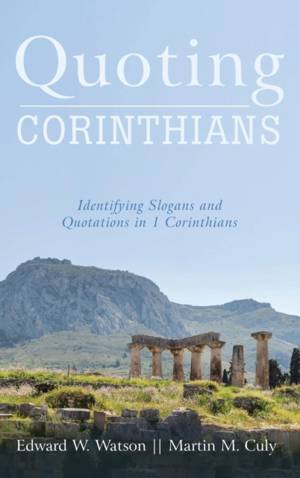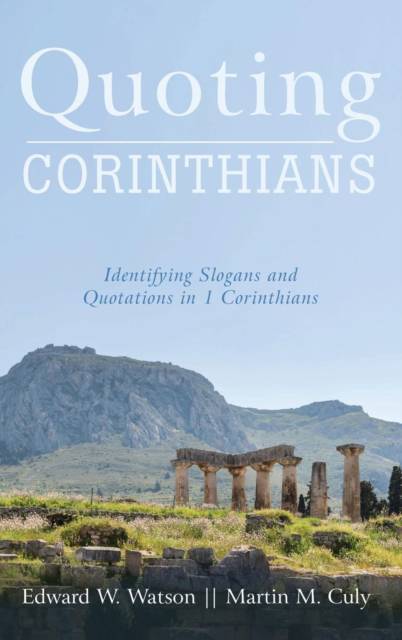
- Retrait gratuit dans votre magasin Club
- 7.000.000 titres dans notre catalogue
- Payer en toute sécurité
- Toujours un magasin près de chez vous
- Retrait gratuit dans votre magasin Club
- 7.000.0000 titres dans notre catalogue
- Payer en toute sécurité
- Toujours un magasin près de chez vous
Quoting Corinthians
Identifying Slogans and Quotations in 1 Corinthians
Edward W Watson, Martin M Culy
Livre relié | Anglais
62,45 €
+ 124 points
Format
Description
Imagine reading a letter where the writer is engaged in a heated debate with someone and repeatedly cites their positions, but never uses quotation marks to indicate that he is quoting them. This is precisely what we find in 1 Corinthians! Paul frequently quotes certain factions within the church and then proceeds to correct their faulty thinking; but he rarely explicitly tells us that he is quoting them. This poses a significant challenge for interpreters of this letter. How do we know when Paul is stating his own position rather than quoting a Corinthian position that he actually rejects? Quoting Corinthians sets forth a step-by-step process for evaluating potential quotations in the New Testament and then applies that process to eleven passages in 1 Corinthians where quotations may occur. As the first book-length attempt to establish more objective criteria for identifying quotations, Quoting Corinthians is a valuable resource for students and scholars alike who are seeking to rightly interpret the New Testament.
Spécifications
Parties prenantes
- Auteur(s) :
- Editeur:
Contenu
- Nombre de pages :
- 162
- Langue:
- Anglais
Caractéristiques
- EAN:
- 9781532650277
- Date de parution :
- 12-12-18
- Format:
- Livre relié
- Format numérique:
- Genaaid
- Dimensions :
- 152 mm x 229 mm
- Poids :
- 390 g

Les avis
Nous publions uniquement les avis qui respectent les conditions requises. Consultez nos conditions pour les avis.






